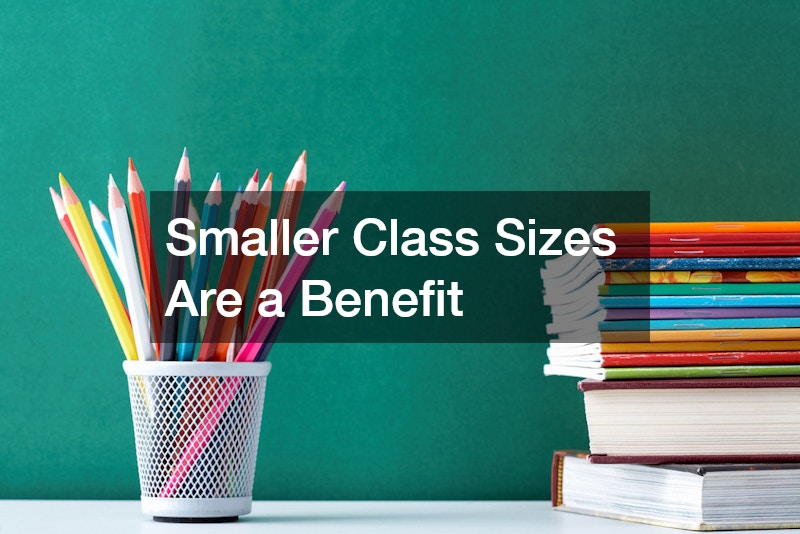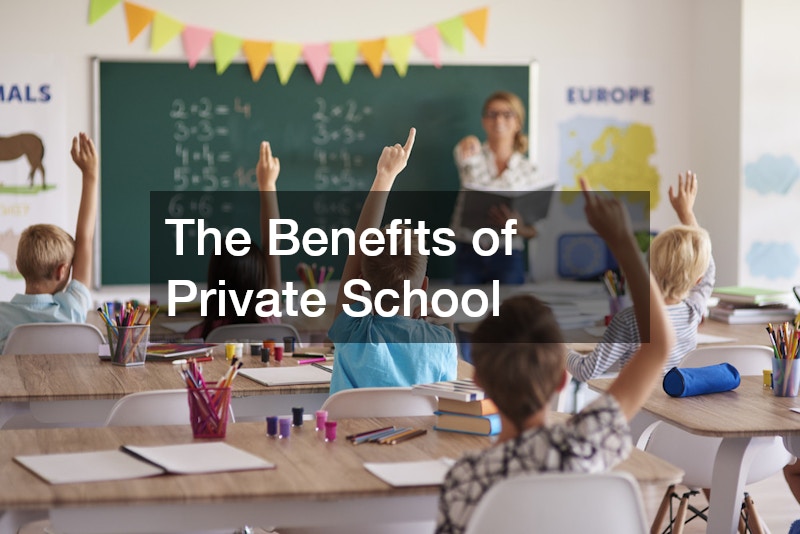When it comes to choosing the best educational path for your child, one of the decisions that parents often face is whether to enroll their child in a public or private school. While both options have their advantages, private schools offer a unique set of benefits that many families find appealing. From a more personalized education to a stronger sense of community, private schools can provide an environment that encourages academic excellence, personal growth, and social development.
In this article, we will explore the numerous benefits of private schools and why many families consider them to be the ideal choice for their children’s education.
1. Smaller Class Sizes and Individualized Attention
One of the primary benefits of private schools is the smaller class sizes. With fewer students per class, teachers have the opportunity to provide more individualized attention to each student. This allows teachers to tailor their teaching methods to meet the unique learning styles of their students, ensuring that each child receives the support and instruction they need to thrive.
Why it matters: In a private school setting, students are more likely to receive personalized instruction, which can result in a deeper understanding of the material and better academic performance. Smaller class sizes also create a more engaging learning environment, where students can ask questions, participate in discussions, and receive immediate feedback from their teachers. This level of attention helps foster a positive relationship between students and teachers, which can lead to improved academic success and emotional well-being.
2. Academic Excellence and Rigorous Curriculum
Private schools often provide a more challenging and rigorous curriculum compared to public schools. Many private schools offer specialized programs in arts, sciences, and advanced placement (AP) courses, which can prepare students for higher education and beyond. Additionally, private schools may focus on specific teaching philosophies or educational models, such as Montessori or International Baccalaureate (IB), which provide a unique approach to learning.
Why it matters: The more rigorous curriculum offered by private schools can better prepare students for the demands of college and the workforce. Students in private schools often outperform their public school peers on standardized tests, and they are more likely to attend prestigious universities. By offering specialized courses and extracurricular activities, private schools create a well-rounded educational experience that nurtures both academic and personal growth.
3. A Strong Sense of Community
Private schools often foster a strong sense of community and belonging. With smaller student populations, students and staff members tend to form close-knit relationships. This tight community allows for a supportive and collaborative learning environment where students can thrive socially and emotionally.
Why it matters: The sense of community in a private school setting can contribute to a positive and inclusive atmosphere. Students are more likely to feel supported by their peers and teachers, which can lead to improved social development and self-confidence. In many private schools, there is a focus on developing strong moral values, empathy, and leadership skills, which helps prepare students to become responsible, compassionate citizens.
4. Greater Parental Involvement
Private schools tend to encourage greater parental involvement in their child’s education. Many private schools have active parent associations or volunteer programs that allow parents to take an active role in the school community. Parents often have more direct access to teachers, administrators, and other staff members, making it easier for them to stay informed about their child’s progress and needs.
Why it matters: The opportunity for increased parental involvement creates a partnership between parents and educators, which benefits the child’s academic and emotional growth. When parents are involved, students are more likely to feel supported at home and in school, leading to improved academic performance and a stronger connection to their educational environment. This partnership also allows parents to advocate for their child’s needs and be proactive in addressing any challenges that may arise.
5. Access to Specialized Programs and Resources
Private schools often offer specialized programs and resources that may not be available in public schools. These can include extracurricular activities, such as advanced art programs, specialized sports teams, music lessons, and leadership training. Additionally, private schools may offer resources such as counseling, tutoring, and college preparation services to help students succeed.
Why it matters: The variety of specialized programs in private schools can enhance students’ educational experience and provide opportunities to explore their interests and passions. These extracurricular activities not only help students develop new skills but also allow them to build their resumes for college applications. Access to resources like tutoring and counseling can help students who need additional support, ensuring that they have the tools they need to succeed both academically and personally.
6. Diverse Student Body and Global Perspective
Private schools often offer a more diverse student body, which can provide students with a broader perspective on the world. Many private schools actively seek to create an inclusive environment that celebrates different cultures, backgrounds, and perspectives. This exposure to diversity can help students develop a greater understanding and appreciation of the global community.
Why it matters: Exposure to diversity in the classroom helps students develop empathy and social awareness, which are essential skills in today’s interconnected world. By interacting with peers from various backgrounds, students gain a better understanding of different viewpoints and develop stronger communication and problem-solving skills. This global perspective is invaluable as students prepare for college and the workforce, where they will encounter people from diverse cultures and experiences.
7. Stronger Focus on Character and Values
In addition to academic excellence, many private schools emphasize character development and moral values. These schools often have a specific mission or set of guiding principles that align with the values they instill in their students. Whether it’s a religious affiliation or a focus on civic responsibility, private schools prioritize helping students develop good character and ethical decision-making skills.
Why it matters: Teaching students the importance of integrity, responsibility, and empathy contributes to their personal growth and helps them become well-rounded individuals. The emphasis on character development creates a supportive and respectful school culture where students are encouraged to be kind, honest, and responsible. These values also help students navigate challenges and make ethical decisions in both their academic and personal lives.
8. Higher Graduation and College Acceptance Rates
Students who attend private schools are statistically more likely to graduate on time and attend college. According to studies, private school students tend to have higher graduation rates and are more likely to be accepted into prestigious universities compared to their public school peers. This is often due to the combination of a challenging curriculum, supportive environment, and access to resources like college counseling and test preparation.
Why it matters: The higher graduation and college acceptance rates in private schools reflect the quality of education and the dedication of teachers and staff. By attending a private school, students are better prepared for higher education and future career opportunities. The skills, knowledge, and character they develop in private school set them up for success in college and beyond.
The benefits of private school are numerous, from smaller class sizes and personalized attention to a more challenging curriculum and a strong sense of community. Private schools offer a unique educational experience that helps students develop both academically and personally. By choosing to send your child to a private school, you are providing them with an environment that fosters academic excellence, personal growth, and social development. Whether you’re looking for a school that offers specialized programs, promotes character development, or encourages parental involvement, private schools provide the tools and resources to ensure your child’s success.


